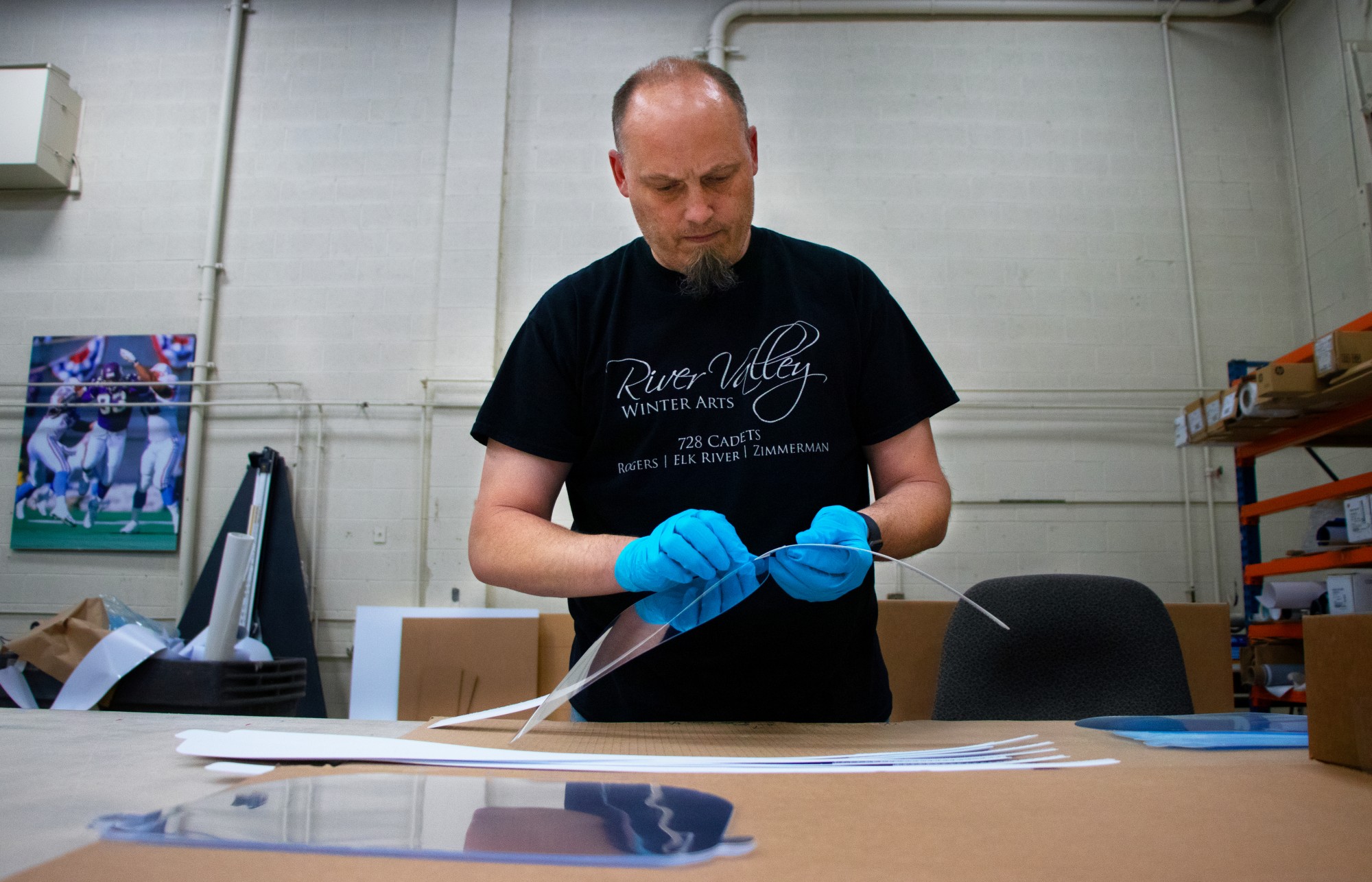Manufacturing companies in Southeast Como are seeing less demand for products, but they expect business to pick up as COVID-19 restrictions are lifted.
Under Gov. Tim Walz’s stay-at-home order, these businesses are deemed essential and are allowed to stay open to provide goods and services for Minnesotans. Disruptions in the supply chain have posed problems for manufacturers globally, but local companies say they have not yet encountered those issues.
“This whole situation … for our business like so many others, has certainly slowed down the amount of business that we’ve been doing,” said Erik Norman, senior vice president of sales and marketing at Bolger, a print service provider and manufacturer in Southeast Como.
Bolger, which provides print products like direct mail, signage and graphics for healthcare, retail and other markets, is still manufacturing products but at reduced volumes, Norman said.
MackayMitchell Envelope, an envelope manufacturing company in Southeast Como, has seen a decrease in the number of orders they usually receive, said David Mitchell, senior vice president of marketing and sales. Its Minneapolis facility is running its machines one fewer day of the week, he said.
“We’re not running on all cylinders by any stretch of the imagination,” Mitchell said.
Most of the envelope company’s paper comes from inside the U.S., but its red ink comes from China, Mitchell said. When the outbreak began ramping up there, the company looked at its supply chain to see if red ink could run out, but that turned out to not be an issue. For now, its paper supply is also doing well, he said.

“We haven’t as of yet really run into anything — knock on wood a little bit — in terms of there being a shortage,” he said.
In a supply chain, the movement of goods starts in the form of raw materials, which moves to manufacturers that make a product in factories, then to warehouses to store and move the product and then to customers.
Murphy Warehouse, a logistics company with a location in Southeast Como, acts mostly as a link in the supply chain, transporting and storing goods for companies. Murphy’s CEO D. Thomas Griep said in a release in late March that as the company is considered essential, it remains committed to keeping the supply chain moving.
Walz announced late last month that some businesses would be allowed to reopen, which included companies not originally included in the essential designation. Norman said Bolger was not affected by this move, but other businesses being allowed to reopen could help kickstart the “economic engine” and bring in more business.
While the pandemic has strained some businesses, it has also provided unique opportunities.
Bolger began donating face shields for healthcare workers made from materials that would otherwise have gone toward its products. For some workers, working remotely has provided a learning opportunity, Norman said.
“It has bred innovation, and that’s a good thing,” he said. “[The shields were] a quick way that we could use our production capability to help.”
Mitchell said as more businesses reopen, the ability to return to normalcy in production will be more likely.
“My prediction is that I think that we’re going to start to go back to some semblance of normal here,” he said.







